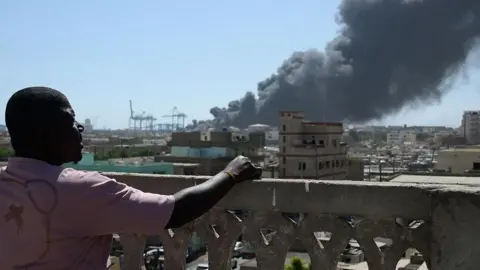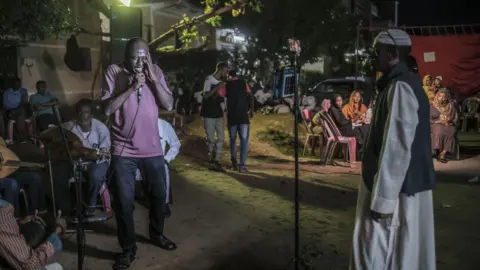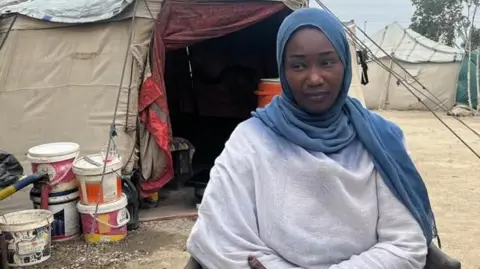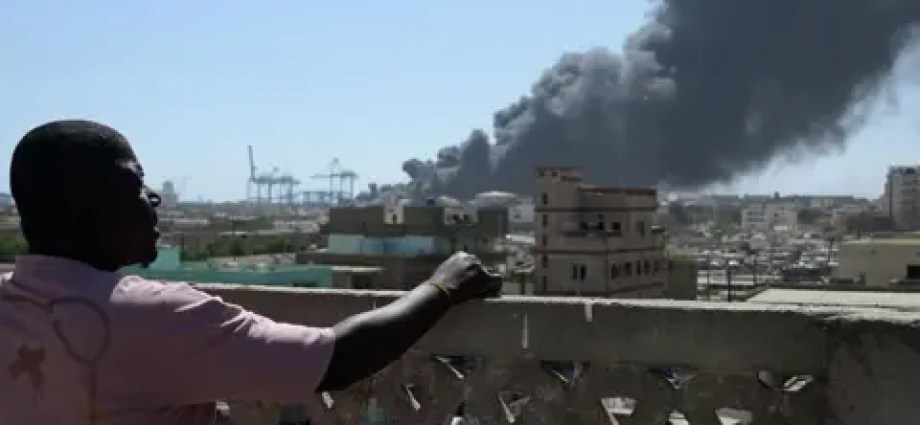Port Sudan Faces Water Crisis and Humanitarian Disaster After RSF Drone Attacks

Water Prices Skyrocket as Essential Services Collapse
Port Sudan, once considered a safe haven in Sudan’s devastating civil war, now faces a severe humanitarian crisis after a week of aerial attacks by the Rapid Support Forces (RSF) paramilitary group. The drone strikes have triggered a massive increase in water prices and crippled essential services.
Smoke continues to rise from three targeted fuel depots six days after the attacks began, with rescue teams struggling to contain the fires. The conflict, now in its third year, has displaced over 12 million people and created one of the world’s worst humanitarian disasters.
26-year-old Mutasim (name changed for safety) told the BBC that water prices have increased fivefold since the attacks began. “A day’s water supply cost me 2,000 Sudanese pounds ($3.30) last week – now it’s 10,000,” he said. The explosions destroyed diesel supplies needed to power water pumps, creating severe shortages for cooking, cleaning and bathing.
Fuel Shortages and Power Blackouts Worsen Crisis

Mutasim’s family spent their entire $3,000 savings to relocate from Omdurman two years ago. “We thought we’d found safety here,” he said. “Now we’re trapped – we can’t afford to move again, but staying is becoming impossible.”
The city suffers from prolonged blackouts, with residents reporting: “We can’t sleep without fans in this heat.” Fuel shortages have created hours-long queues at petrol stations, a new hardship for what was previously Sudan’s most stable city.
Humanitarian Catastrophe Looms as Aid Routes Threatened

Hawa Mustafa, a teacher who fled Darfur, described living in constant fear: “The drone sounds bring back memories of war in el-Geneina.” Like many displaced persons, she has nowhere left to flee. “I dreamed of leaving Sudan, but that hope is gone,” she told the BBC.
Port Sudan serves as the main hub for humanitarian aid, with the World Food Programme distributing over 10,000 metric tons of food monthly through its port. WFP spokesperson Leni Kinzli warned: “These attacks threaten our ability to deliver life-saving assistance.”
With famine already declared in 10 regions and 17 more at risk, aid organizations fear the attacks could collapse Sudan’s last functional aid distribution network. Norwegian Refugee Council’s Shashwat Saraf said: “Finding alternative routes will be extremely challenging.”
The city that once bustled with nightlife now lies dark and quiet, its residents trapped between war and an increasingly desperate humanitarian situation.
Source: BBC News


